On Sunday Nico Rosberg became only second son of a world champion to take the crown for himself, following in the footsteps of Damon Hill who matched his own father's feat in 1996.
The Hills
Graham Hill made his first Formula One start in 1958, a retirement in the Monaco Grand Prix - a race that would become synonymous with him later in his career.
Like Keke Rosberg, his first title came in the year of his first victory - 1962. Also like Rosberg, he'd only managed one podium finish before then. However, that was probably an unfair assessment of his career up to that point, because out of 32 Grands Prix entered between 1958 and 1961, Will only managed to finish nine of them.
Nevertheless, four wins and two second places came in '62, plus two more wins and the runner up spot for each of the next three years.
After racing for BRM since 1960, Hill returned to Lotus in 1967, having driven for the team in '58 and '59 (his début in a 1957 non-championship round was in a self-entered Willment-Climax).
The move allowed him to return to winning ways after a tough 1966 season, and in 1968 Hill took his second championship win.
He would carry on racing until 1975, when he retired after racing with his own team. Tragically, he died in a plane crash six months after his final Grand Prix.
In a complete contrast to Nico Rosberg, Damon Hill entered the Formula One scene already 30 years of age. Originally a motorcycle racer, Hill dovetailed an F3000 campaign, with testing duties for Williams and race seat with Brabham in 1992, however, he was surprisingly promoted to race seat with Williams the following season after Riccardo Patrese's exit.
In his first full season, Damon Hill took three wins, four second places, and three thirds on his way to third in the championship in a year that was dominated by his team mate Alain Prost.
1994 saw Prost eave and Ayrton Senna come in. However, the Brazilian's tragic death in only the third race of the year saw the relatively inexperienced Hill shuffled into a team leader role.
After six wins, and a titanic, yet controversial championship battle with Michael Schumacher, Hill finished the year second in the points - a result that would be mirrored a year later.
However, with Schumacher leaving Benetton for the struggling Ferrari team in 1996, Hill finally had a clear chance to emulate his father. He won half of the races that year on his way to beating rookie team mate Jacques Villeneuve to the championship, but he learned before the year was out that he was to be dropped ahead of next season, despite winning three races in every season he races for the team, and never finishing lower than third in the championship.
A dismal 1997 season with Arrows, a year in which his former team mate Villeneuve - coincidentally another second generation driver - won the championship.
Hill moved to Jordan in 1998, taking one more win in the rain-hit Belgian Grand Prix ahead of team mate Ralf Schumacher, before calling it a day at the end of the following season.
Damon Hill's son Josh embarked on his own motorsport career, and could have become F1's first third-generation champion, but he called time on his life behind the wheel aged just 22 after racing in Formula Renault and Formula 3 in order to pursue a music career.
The Rosbergs
Keke Rosberg made his Formula One début at the relatively old age of 29. To put that into perspective, Rosberg took his first title aged 31 after a decade of racing in F1.
A race winner in Formula Two, Rosberg Snr. spent four seasons racing for smaller teams, taking a best result of third at the 1980 Argentine Grand Prix for Fittipaldi, before moving to Williams for 1982.
The 1982 season proved to be a remarkable one with 11 different race winners, including nine different winners over nine consecutive rounds. Rosberg only took one win - the first of his career - but further podiums in Long Beach, Belgium, The Netherlands, Germany, and Austria meant that he was able to beat Didier Pironi, John Watson, Alain Prost, Niki Lauda, and René Arnoux to the title.
Fast forward 24 years and his son Nico Rosberg made his Formula One début for Williams at the 2006 Bahrain Grand Prix. Prior to his first Grand Prix, he underwent Williams' Engineering Aptitude Test, a test given to all of the team's drivers, and he set a record score.
His results on the track unfortunately did not match. Rosberg's arrival in F1 coincided with William's downturn in form. They hadn't won a race since the 2004 season finale and customer Cosworth, and later Toyota, engines could not match Renault, Mercedes, and Ferrari's offerings.
Nevertheless, a brace of podiums came in 2008 before he made the move to Mercedes in 2010 to race alongside Michael Schumacher at the team that won the 2009 championship as Brawn GP.
Rosberg routinely outclassed his returning compatriot over the tree years they spent together, taking five podiums, two fastest laps, a pole position, and a win. In 2013, Schumacher made way for Lewis Hamilton, and despite an upturn in form for Mercedes, in particular from 2014 when the 1. V6 turbo formula was introduced, Rosberg was forced to live in the Briton's shadow.
After missing out on the championship in 2014 in a double-points season finale, Rosberg again lost out in 2015, but ended the year on a high by taking three consecutive wins. That form continued into 2016 as he won the opening four rounds.
Five more wins followed, including the inaugural Grand Prix in Azerbaijan, and Rosberg was finally able to claim his first world championship, despite having one less victory than Hamilton who, like Rosberg a year before, enjoyed a resurgent end to the season.
The Hills v The Rosbergs
Grands Prix - Hills: 291 Rosbergs: 320
Titles - Hills: 3 Rosbergs: 2
Wins - Hills: 36 Rosbergs: 28
Podiums - Hills: 78 Rosbergs: 74
Poles - Hills: 22 Rosbergs: 35
Laps led - Hills: 2461 Rosbergs: 2049
Other second generation drivers
While the Hills and the Rosbergs may be the only families to lay claim to two generations of Formula One champions, a number of families have had more than one generation race in the pinnacle of motorsport.
Here's a select few families that have also made their mark on Formula One:
The Verstappens - Perhaps the most well known second generation driver at the moment is Max Verstappen. The Red Bull race winner is the son of Jos Verstappen, who raced in F1 in the 1990s and 2000s. Unfortunately, F1's current second generation drivers come from the only families without a world title on this list. With Max Verstappen however, it only seems like a matter of time before that changes.
The Magnussens - Another second generation driver in the current field is Kevin Magnussen. Like his son, Jan Magnussen began his career as a McLaren test driver. He now races for Corvette Racing in the US and has had a hugely successful sports car career since leaving F1, while Kevin Magnussen will race for his third team in four seasons next year when he makes the switch from Renault to Haas.
The Villeneuves - The above list may have been longer had Gilles Villeneuve not died during the 1982 season. Although only a six time Grand Prix winner, Gilles Villeneuve is regarded as one of the best ever. His son Jacques was IndyCar champion in 1995 and took the Formula One title in 1997.
The Piquets - Nelson Piquet was a three-time Formula One world champion. Sadly, his son Nelson Jr. is perhaps best remembered, in F1 circles at least, for crashing out of the 2008 Singapore Grand Prix - a move that gifted Renault team mate Fernando Alonso the win. Since his F1 exit he has carved out a hugely successful career in NASCAR, Red Bull Global Rallycross, sports car racing, and Formula E, where he was the series' first ever champion.
The Fittipaldis - Wilson Fittipaldi made 35 starts during his Grand Prix career, taking a best finish of fifth in the 1973 German Grand Prix. His son Christian fared slightly better, taking three fourth place finishes in three seasons racing for minnows Minardi and Footwork. However, Emerson Fittipalid, Wilson's brother and Christian's uncle, was a two-time world champion.
The Sennas - Unlike the others on this list, Ayrton Senna didn't have a son. Instead, his nephew Bruno made his F1 début in 2010 after a promising junior career. Despite huge expectation, three years in sub-par machinery meant that he failed to make a lasting impression. He is now a sports car racer.
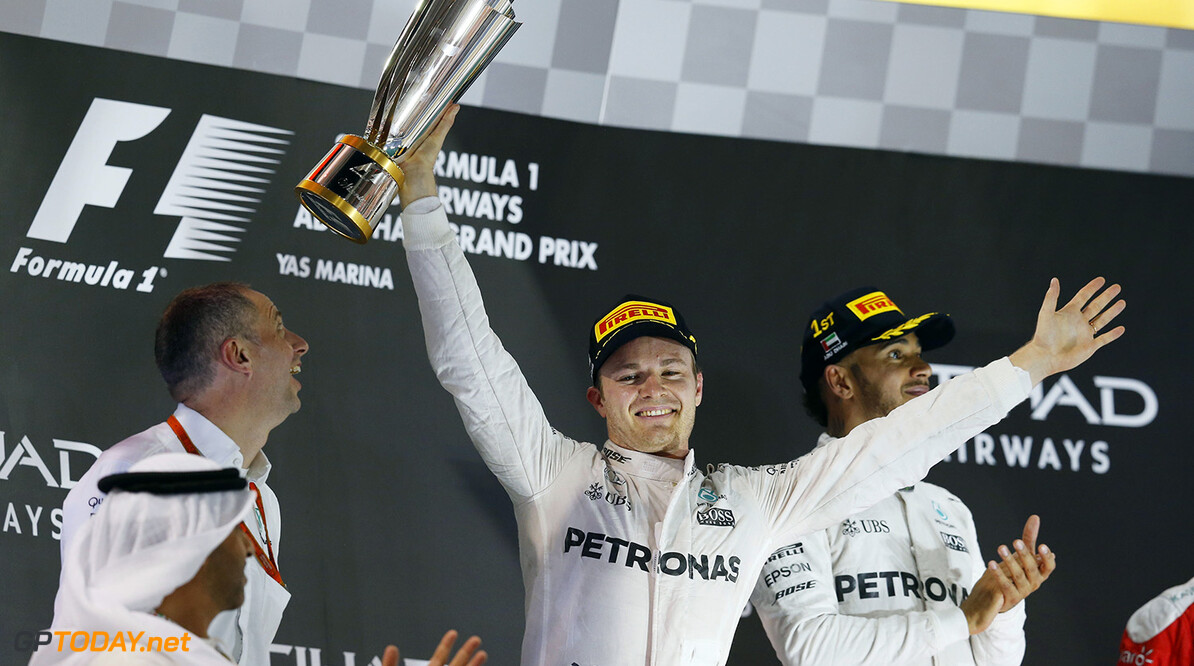
 0
0













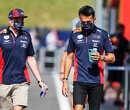
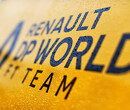
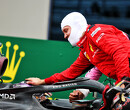
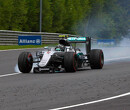
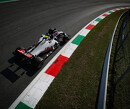
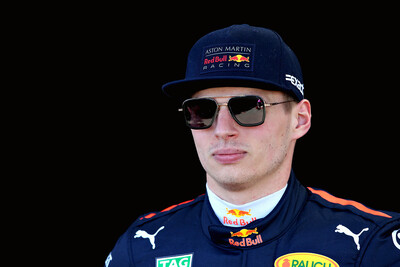




Replies (0)
Login to reply